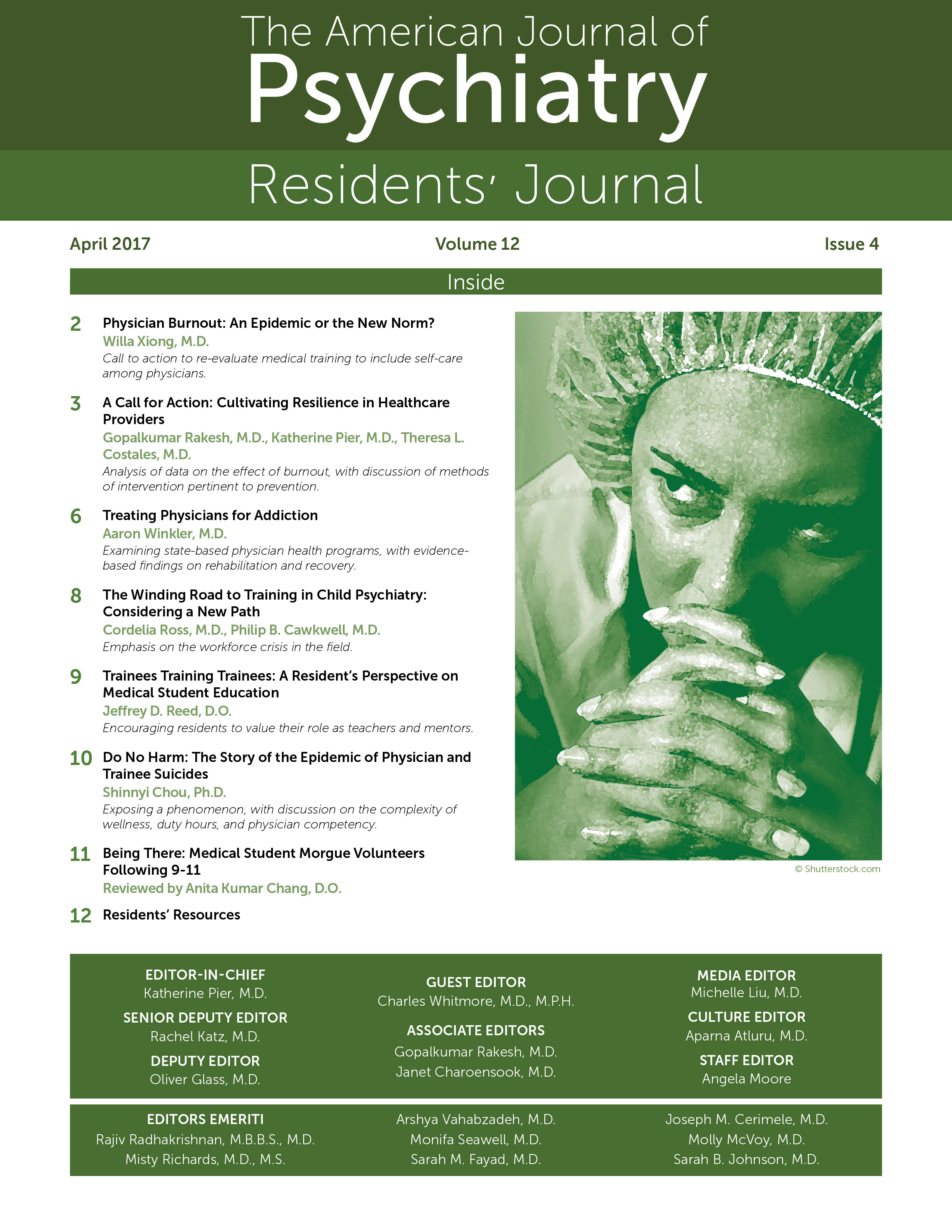At the start of every student clerkship a common question residents ask of themselves is, “How can I make this the best experience for my students?” Considering the high standards institutions hold for students and the milestones they are expected to meet, what role does a resident have in providing a well-rounded experience? Residents have a unique opportunity to teach and learn alongside a talented group in the nascence of their career. However, teaching can be challenging, and new residents often ask the question, “I’ve never taught before, what can I offer?” You passed your boards, survived The Match, and graduated medical school. You can teach.
Teaching is an essential part of a resident’s job; however, few have any formal experience. With the daily cost of medical school approaching nearly £166 per day (
1), residents want to make students’ experience as meaningful as possible. In 2016, approximately 5% of seniors graduating from an American medical school chose to pursue psychiatry, while 56% sought a primary care residency, including family medicine, internal medicine, obstetrics/gynecology, or pediatrics (
2). The majority of medical students we teach will have little training in psychiatry beyond their psychiatric clerkship, yet primary care providers will often be the principal source of mental health treatment (
3,
4). Residents are therefore essential in helping to provide students with the psychiatric training needed in their future practice.
A rotation in psychiatry leaves a lasting impression, regardless of a student’s desired specialty, and residents serve as ambassadors to this experience. Some programs have evolved students’ learning through scholarly presentations, reviews (
5), and student-run clinics that bolster clinical skills and interest in that specialty (
6). An applied approach is to encourage students to present an article during rounds on a topic relevant to their patient. Another is to invite students to interview patients in the resident clinic to expose trainees to long-term care management. Given our relative closeness in age and training, residents can provide a comfortable, nonjudgmental structure for students, a relationship that may be more difficult to foster with faculty. Residents also serve as a valuable resource on subjects such as choosing a specialty, applying to residency, and managing life outside the hospital. It’s important to remember that the students you instruct today will in brief time be teachers and leaders in their own right, and residents significantly contribute to this growth.
I am a resident and researcher, and as much as I love the work I do, there are few things more satisfying than working with students. As residents, we serve as teachers and mentors and represent a cornerstone to the tradition of medical training. As psychiatrists, we offer students a rare glimpse into the area of medicine that best italicizes the most delicate of patient experiences, the vulnerability and resilience of the human mind. As my father said long before I entered medical school, “To be a doctor is to teach.” Though teaching may be a challenging responsibility, it can be one of the most fulfilling experiences of our careers.
